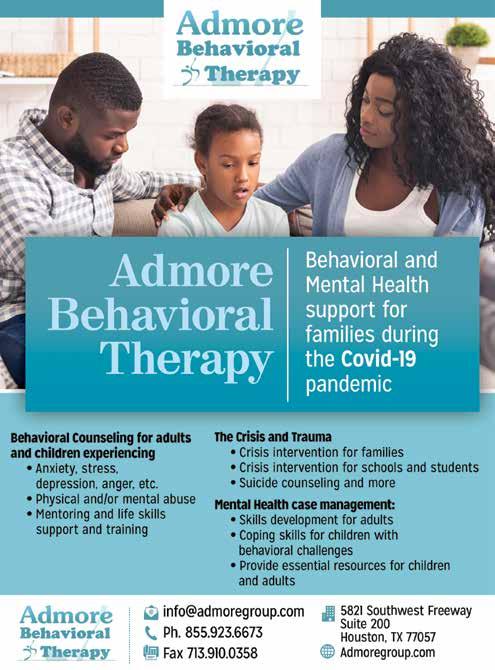






o matter where they are from, who they are, their economic circumstances, or educational backgrounds, significant majorities of Black Americans say being Black is extremely or very important to how they think about themselves.
A new Pew Research poll revealed that a significant share of Black Americans also says that when something happens to Black people in their local communities, across the nation, or around the globe, it affects what happens in their own lives, highlighting a sense of connectedness.
“Black Americans say this even as they have diverse experiences and come from an array of backgrounds,” the authors of the poll noted.
“Even so, Black adults who say being Black is important to their sense of self are more likely than other Black adults to feel connected to other groups of Black people,” the authors discovered.
“They are also more likely to feel that what happens to Black people inside and outside the United States affects what happens in their own lives.”
The Pew Research Center conducted an analysis online between Oct. 4, 2021, and Oct. 17, 2021.
The organization surveyed 3,912 Black U.S. adults and explored differences among Black Americans in views of identity such as between U.S.-born Black people and Black immigrants; Black people living in different regions of the country; and between Black people of different ethnicities, political party affiliations, ages, and income levels.
Most non-Hispanic Black Americans (78 percent) reported that being Black is very or extremely important to how they think about themselves.
This racial group counted as the largest among Black adults, accounting for 87 percent of the adult population, according to 2019 Census Bureau estimates.
But among other Black Americans, roughly six-inten multiracial (57 percent) and Hispanic (58 percent) Black adults reported the same.
According to the 2020 U.S. Census, the nation’s Black population stands at 47 million, or 14 percent of the country’s population.

The survey authors reported that while the vast majority of Black Americans said their racial background is Black alone (88 percent in 2020), growing numbers are also multiracial or Hispanic. Most were born in the U.S. and trace their roots back several generations in the
country, but a growing share is immigrants (12 percent) or the U.S.-born children of immigrant parents (9 percent).
Geographically, while 56 percent of Black Americans live in the nation’s South, the national Black population has also dispersed widely across the country, researchers reported.
The report noted that Black Americans also differ in significant ways in their views about the importance of being Black to personal identity.
While majorities of all age groups of Black people say being Black shapes how they think about themselves, younger Black Americans are less likely to respond the same.
Black adults ages 50 and older are more likely than Black adults ages 18 to 29 to say that being Black is very or extremely important to how they think of themselves.
Specifically, 76 percent of Black adults ages 30 to 49, 80 percent of those 50 to 64 and 83 percent of those 65 and older hold this view, while only 63 percent of those under 30 reported that belief.
Black adults who identify with or lean toward the Democratic Party are more likely than those who identify with or lean toward the Republican Party to say being Black is important to how they see themselves – 86 percent vs. 58 percent.
And Black women (80 percent) are more likely than Black men (72 percent) to say being Black is important to how they see themselves.
The report found that some subgroups of Black Americans are about as likely as others to say that being Black is very or extremely important to how they think about themselves.
According to the survey, U.S.-born and immigrant Black adults are about as likely to say being Black is important to how they see their identity.
However, not all Black Americans feel the same about the importance of being Black to their identity – 14 percent say it is only somewhat important to how they see themselves while 9 percent say it has little or no impact on their personal identity, reflecting the diversity of views about identity among Black Americans.
• About half of Black adults say their fates are strongly linked with other Black people in the U.S.
• Most Black adults say being Black is very important to how they see themselves
• Black Americans who say being Black is important to them are more likely to feel connected to other Black people.
• Black adults who say being Black is important to them are more likely to learn about their ancestors from relatives.
• Black adults under 30 years old differ significantly from older Black adults in their views on the importance of Blackness to their personal identity.
• However, Black adults also differ by age in how they pursue knowledge of family history, how informed they feel about U.S. Black history, and their sense of connectedness to other Black people.
• Black Democrats are more likely than Republicans to say what happens to other Black people in the U.S. will affect their own lives.
• Half of Black adults say where they currently live is an important part of their identity.
• Majorities of Black adults say their gender and sex uality are very important to them.
• Black women are more likely than Black men to say their gender is very important to them.
For the full report, please visit www.pewresearch.org.
Source: National Newspaper Publishers Association (NNPA)
 By d-mars.com
By d-mars.com
ew research from the Columbia University Mailman School of Public Health finds patients and physicians share widespread trust in pharmacists. This is welcome news as pharmacists in the United States are poised to take on additional responsibilities to help fill the growing care gap expected from health care provider shortages in the next decade.
The Prescription of Trust report is the result of the largest and most comprehensive research study on the future role of pharmacists that incorporates the voice of patients, prescribers, and pharmacists. The study was commissioned by Express Scripts Pharmacy, one of the nation’s largest and most experienced home delivery pharmacies, to understand the expanding role of pharmacists.
“The COVID pandemic has spotlighted pharmacists’ accessibility and the trust people have in them as health care professionals,” said Susan Peppers, RPh, chief pharmacist of Express Scripts Pharmacy, an Evernorth company.
Patients are ready… so are prescribers.
Nearly 80% of patients see pharmacists as an integral part of their health care team. Doctors and other healthcare providers are already turning to pharmacists more often for support -- 72% consider pharmacists to be part of their healthcare team, working together to provide the best care for patients.
eases, allowing them to discuss disease and medication management directly with a patient as well as in conjunction with their health care provider team,” explained Peppers.
• Counseling patients: Expect pharmacists to spend more time proactively counseling patients on medications and overall wellness. Telepharmacy is particularly conducive for this level of care as patients are often more comfortable asking questions about their medications from the privacy of home, and without the distractions at a pharmacy counter. Telepharmacists can take time to answer your medication questions. In fact, according to the study, of pharmacists who use telepharmacy, more than a third say it gives them more time to interact with patients.
The U.S. Centers for Disease Control and Prevention (CDC) has announced the launch of the Center for Forecasting and Outbreak Analytics (CFA).
According to a news release, the CFA seeks to enhance the nation’s ability to use data, models, and analytics to enable timely, effective decision-making in response to public health threats for CDC and its public health partners.
CFA’s goals are to improve outbreak response using infectious disease modeling and analytics and to provide support to leaders at the federal, state, and local levels,” officials stated in the release.
They noted that CFA will also develop a program to provide insights about infectious disease events to the public to inform individual decision-making – the equivalent of the National Weather Service for infectious diseases.
“I am excited we have launched CDC’s Center for Forecasting and Outbreak Analytics,” said CDC Director, Dr. Rochelle P. Walensky.
“This new center is an example of how we are modernizing the ways we prepare for and respond to public health threats. I am proud of the work that has come out of this group thus far and eager to see continued innovation in the use of data, modeling, and analytics to improve outbreak responses.”
Walensky added that CFA’s work will be focused on three main pillars: to predict, inform, and innovate.
• Managing chronic diseases: Estimates predict that by 2025, 164 million Americans will have a chronic disease. As the need to support patients with chronic disease grows, you can expect pharmacists to step up to the plate by serving as specialists who advise patients, or by interacting with a larger health team to manage complex care. At the forefront of this trend are pharmacists in ambulatory clinics, hospitals, and home delivery pharmacies. Indeed, Express Scripts Pharmacy is already supporting patients with such conditions as diabetes, HIV, and cardiovascular conditions through its Therapeutic Resource Centers. In these centers, pharmacists are trained to focus on the treatment and management of specific conditions.
• Taking on a bigger role: In some states, pharmacists can already prescribe certain types of medication. As physician and nurse practitioner shortages escalate, there is a growing movement for pharmacists to receive more training in diagnosing minor and acute conditions and prescribing medication to treat them.
“Beyond dispensing prescription medications and providing medication advice, many of our pharmacists are already specially trained in specific dis-
For health care news, along with helpful tips from pharmacists on how to stay safe and healthy, visit Express Scripts Pharmacy at express-scripts.com/pharmacy/blog.
“On the medication front, your pharmacist is a member of your care team who can see you from a 360-degree perspective,” says Peppers. “For this reason, pharmacists have always been uniquely positioned to be a frontline member of your overall health care.”
Source: StatePoint
According to the release, CFA has begun to build a world-class outbreak analytics team with experts across several disciplines to develop faster, richer evidence to predict trends and guide decision-making during emergencies.
Further, to better inform partners, CFA is hiring expert communicators to regularly share insights with federal, state, and local partners and the public.
CFA will also continue to advance the state of the science of outbreak data, models, and analytics to improve the nation’s ability to respond to health emergencies.
“The capabilities and team we are building at the new Center will improve decision-making in a health crisis,” said Dr. Dylan George, Director for Operations.
“I am proud of the CFA team and excited for the future. Better data and analytics will give us better responses to protect all Americans.”
Planning for CFA began in August 2021, with the initial funding of $200 million from the American Rescue Plan Act.
Thus far, the CDC has awarded $26 million in funding to academic institutions and federal partners to advance modeling and forecasting methodology, with an emphasis on workforce development and health equity. In December 2021, CFA worked with academic partners to assemble models anticipating the Omicron wave and generated early estimates of Omicron severity, giving leaders an opportunity to bolster the response.
For more information on CFA, visit www.cdc.gov/CFA.
Source: National Newspaper Publishers Association (NNPA)
“As the shortage of doctors and nurses persists, and as complex new therapies and digital health care technology solutions are developed, the role of the pharmacist will continue to evolve,” said John McHugh, MBA, PhD, an assistant professor in the Department of Health Policy and Management at Columbia University Mailman School of Public Health.



